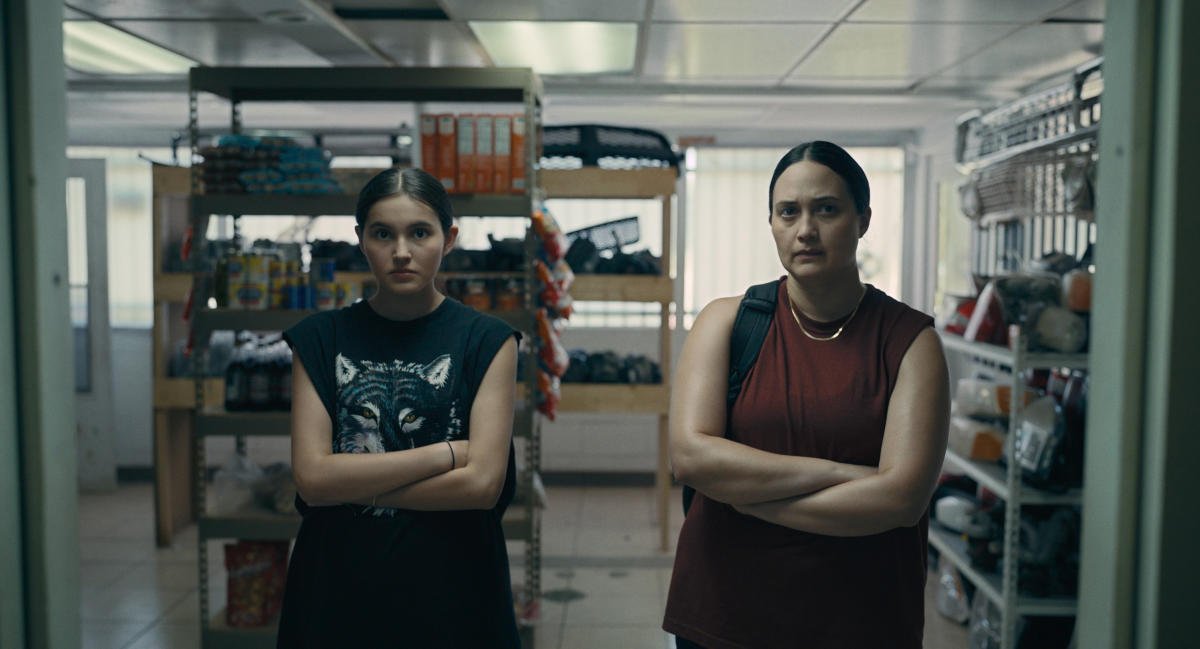'Fancy Dance' Review: Lily Gladstone's Powerhouse Performance Leads Gripping Drama
Lily Gladstone continues to prove why they’re one of the best actors working today in Fancy Dance, a deeply moving and compassionate character drama.
In the wake of a historic Academy Award nomination for their performance in Killers of the Flower Moon, Lily Gladstone and Apple reteam once more for Fancy Dance, a deeply moving drama that’s anchored by two powerful turns from both Gladstone and Isabel DeRoy-Olsen, who portrays Roki. The 13-year-old child has been living with her aunt, Jax (Gladstone), in the wake of her mother, Watatawi’s, disappearance. She has been gone for over two weeks without planning to find her.
Jax’s brother, JJ (Ryan Begay), also a Tribal police officer, says that his hands are tied and that jurisdiction to find Tawi can only occur if the FBI gets involved. However, Jax receives a visit from a Child Protective Services agent who gives custody of Roki to Jax’s father, Frank (Shea Whigham), who remarried a white woman (Audrey Wasilewski) and moved from the reservation, something none of his children have forgiven him for.
But Jax thinks Roki has the right to attend a powwow she participates in every year with her mother. Jax snatches Roki away from her grandparents, and the two go on a cross-country trip to the powwow with the promise that she will be able to reunite with her mother there, something she will never be able to keep, knowing that Tawi is most likely dead. Jax’s parents decide to call on the police to hunt them down, with the FBI now acting instead of looking for Tawi, which is what Jax will hopefully be able to do as she takes Roki to the powwow.
Directed by Erica Tremblay, with a script written by Tremblay and Miciana Alise, Fancy Dance’s core is the close bond both Jax and Roki have with one another and the gut-punching lead performances from both Gladstone and DeRoy-Olson. Without them leading the fort, the movie’s rudimentary visual style and undercooked supporting cast unfortunately don’t add much to the proceedings, even if Whigham, Begay, and Wasilewski are equally great with the limited screen time they have.
One of the most important aspects of the movie is its sparse use of conservation spoken in Cayuga, as they know it’s the only language barrier. They can only speak to themselves without anyone else understanding what they are communicating. In one such scene, Roki tells Jax what ‘aunt’ truly means in Cayuga, which has a far deeper connotation than she initially says it does. This specific moment is the film’s most potent in our understanding of how Roki perceives Jax and how, in turn, Jax sees Roki as the daughter she never had.
It happens much later on in the film, but it completely shifts our perception of what we saw beforehand, particularly during a tense exchange with a racist ICE agent who wants to verify their immigrant status. The FBI is taking their sweet time in establishing a plan to find Watatawi but is quickly on the hunt for Jax and Roki, while an ICE agent, who can’t understand Cayuga and is being slightly swindled by the two, thinks it more important to verify the immigrant status of people who have lived on a reservation their whole lives. The scene can’t be clearer. The agent is the colonizer who exercises his privilege while living a privileged life on stolen land, while the ones who were there first can’t even be treated with decency.
From these specific moments, we grasp Jax’s relationship with Roki, which is much more than a simple ‘aunt-niece’ bond and is far more spiritually aware than meets the eye. As Jax, Gladstone continues to prove why they’re one of the best actors working today, with a performance of equal nuance and complexity to their Oscar-nominated Mollie Burkhart in Martin Scorsese’s Killers of the Flower Moon. Gladstone’s eyes say so much about Jax’s plight without even saying a word, whilst DeRoy-Olson’s revelatory breakout role as Roki is the most impressive child performance I’ve seen this year. Suppressing her emotions in favor of bonding with Jax, she ultimately breaks down once learning the truth of Watatawi’s disappearance, in a deeply affecting exchange between herself and Jax. Each expressive change cuts far deeper than what’s on screen, culminating to a powwow that’s not only spiritually important for Roki, but equally essential for Jax to understand exactly why it was important for her niece to ‘reunite’ with her mother.
The ending powwow is the movie’s most emotionally resonant sequence, one that brings the relationship between the two in a full circle position with where the film began. It’s also the main reason why the movie, coupled with Gladstone and DeRoy-Olson’s performances, is a must-see, even if it underdevelops its supporting cast and several thematic underpinnings through its short 90-minute runtime. But Fancy Dance never overstays its welcome and ends the way it should — on the film’s terms, after everything Tremblay and Gladstone wanted to cover has been completed. Now that’s how you do it.



